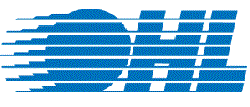NEWS RELEASE
CANADIAN HOCKEY LEAGUE
*************************
Canadian Hockey League Embraces Drug Education & Anti-Doping Policy Program
Toronto, ON – The Canadian Hockey League (CHL) announced today that it was entering into an agreement with the Canadian Centre for Ethics in Sport (CCES) to develop and adopt a CHL Drug Education & Anti-Doping Policy. The adoption of such a policy would be the first step in the implementation of a comprehensive drug education & anti-doping program that would apply to all three leagues in the CHL: Western Hockey League (WHL); Ontario Hockey League (OHL); and the Quebec Major Junior Hockey League (QMJHL). The QMJHL has been running a similar pilot program since 2004.
“We have a responsibility to our players and the Canadian public,” stated David Branch, CHL President and Commissioner of the Ontario Hockey League. “The CHL strongly believes that the health and safety of our players is vital to maintaining a strong and vibrant league that is doping free.”
“The QMJHL policy has clearly demonstrated the positive effect an anti-doping program can have on our sport.” Mr. Branch said. “This is a model that we believe we should be embracing, a model that focuses on education and provides our players with the tools to make the right decisions.” The new CHL Drug Education & Anti-Doping Policy will replace the current QMJHL policy.
While the policy will reside outside of the Canadian Anti-Doping Program (CADP), it will see the CCES test for the full range of substances found on the World Anti-Doping Agency (WADA) Prohibited List. As well, any players who commit an anti-doping rule violation will be listed on the CCES violations registry. This list is shared with WADA. Those players on the CCES violations registry would then be subject to the World Anti Doping Code compliant CADP when involved in sport outside of the CHL. This would include being prohibited from playing hockey or any other sport at the university, college, or Olympic level for Canada. As a CHL player, depending on the substance, the league is looking at five to ten game sanctions for first violations.
“We’re putting together educational materials for the players in anticipation of starting testing in January 2007,“ said WHL Commissioner Ron Robison. “Parents and billets of CHL players will be provided with extensive resource information and materials. No testing will occur until all athletes have gone through the education program.”
The QMJHL worked with the CCES to develop and implement its anti-doping policy and program in 2004. The program focused on education, detection, and deterrence. In two years of operating with an anti-doping policy in place, 60 tests have been conducted. There was only one positive result during that period.
“Our focus was on education and deterrence,” said Gilles Courteau, Commissioner of the QMJHL. “We believe that the combination of education and testing sends a clear message to our players that there is no place for doping in sport.” Mr. Courteau went on to praise the CHL for its proactive commitment towards the development and adoption of an anti-doping program for all of the leagues.
The CCES will work with the CHL to develop and implement its anti-doping policy and program. The CCES will provide a full education program and will implement all aspects of testing. As an independent, ISO certified, national anti-doping agency, the CCES will ensure that the CHL program will be administered in an open and transparent fashion to ensure public confidence and to eliminate the vested interests that often undermine the credibility of in-house programs.
“We believe that the CHL and its leagues are demonstrating tremendous leadership in protecting their sport and the health and safety of their players,” commented Mr. Paul Melia, President and CEO of the CCES.
The CCES is committed to working with developmental and professional leagues across the country in order to assist them with the implementation of anti-doping programs for their league. “We believe that by working with leagues, such as the CHL, bringing anti-doping programs to the developmental level and ultimately the professional levels,” stated Mr. Melia, “we can have a positive impact on Canada’s domestic drug education & anti-doping program.”
The CCES is a non-profit organization which promotes ethical sport for all Canadians through research, promotion, education, detection and deterrence. The CCES conducts many of these programs through partnerships with other organizations.
************************************************************
